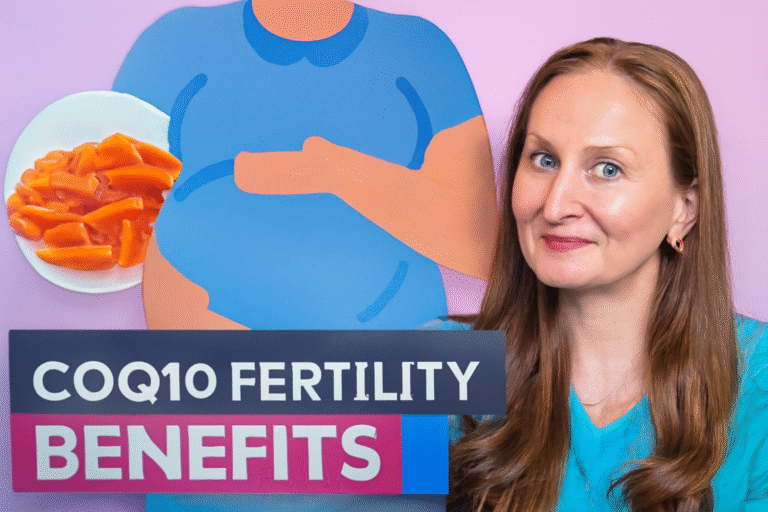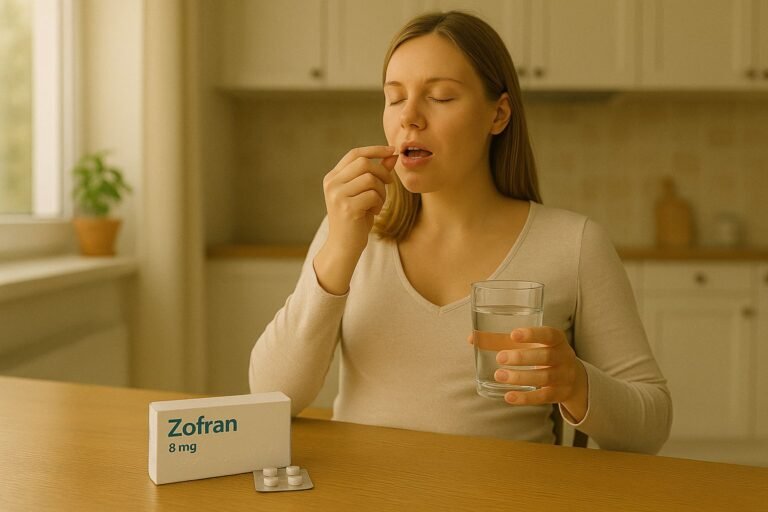Trying to get pregnant? You should make sure you’re eating well to give your body the best chance.
What minerals and vitamins are you not thinking about but should be? What’s even more important is: Will your regular prenatal pill give you everything you need?
These five foods, vitamins, and minerals have been shown to help with getting pregnant.
Nutritionists say women may not be getting enough of them or know how to take them at all.
Also read: GLP-1 Agonists and Their Impact on Preconception Health
Zinc
A study from Pennsylvania State University that was given at the annual meeting of the American Physiological Society last month found that not getting enough zinc can hurt the development of eggs.
Even though this study only looked at mice and not people, the study’s lead author, James Hester, a graduate student in physiology at Penn State, said that new research in his lab and others shows that zinc is a “key regulator” of egg cell development.
In the process of oocyte division, fertilization, DNA regulation, and embryo growth, it has a part to play.
Hester told conceptioncorner, “Our most recent project shows that the need for zinc starts even earlier than we thought.” “Women who are trying to get pregnant should definitely think about how much zinc they and their partner eat. But they should also think about their overall diet and other health issues.” Zinc is just one important part of the picture.
It’s not likely that you are zinc deficient if you eat well and take a supplement, so you probably don’t need to be checked.
Hester said, “Micronutrient levels are definitely something to talk about with an OB-GYN, especially if women have other risk factors like not having enough food, GI (gastrointestinal) disorders, or a strange diet or way of life.”
Zinc should be taken in at a daily rate of 8 milligrams for adult women and 12 milligrams for women who are pregnant or breastfeeding.
Hester says that women who are trying to get pregnant can take the higher dose, but they should be careful because too much zinc can make it hard for the body to absorb copper and use it.
Choline
Nearly 90% of Americans don’t get enough of the vitamin choline. In fact, only 5 to 10 percent of pregnant women are following the rules for diet.
“Choline is important for health at all stages of life, but it’s especially important for brain health, both early in life when the brain is developing and later in life to keep it from getting worse,” said Elizabeth Shaw, a registered dietitian from California and co-author of “Fertility Foods Cookbook: 100+ Recipes to Nourish Your Body.”
Many foods, like egg yolks, green beans, and liver, contain small amounts of choline. that can helps fertility in women.
Shaw said that eating a lot of meat, whole eggs, and green veggies can help people get enough choline. People should consume 550 milligrams of choline per day.
Shaw told us that not all prenatal pills have choline in them.
She also said that the American Medical Association recently recommended that all prenatal vitamins include scientifically proven amounts of choline.
Omega-3s
Docosahexaenoic acid (DHA) is very important for the brain and eyes of babies. It can only come from mothers for their kids.
A study published in 2016 in the European Journal of Obstetrics & Gynecology and Reproductive Biology found that taking omega-3 supplements was linked to a 58% lower risk of early preterm birth (babies born before 34 weeks) and a 17% lower risk of preterm delivery (babies born before 37 weeks).
In the same year, the New England Journal of Medicine found that babies born to mothers who ate omega-3s during the third trimester had a roughly one-third lower risk of asthma and lower respiratory tract infections.
Shaw said that women who are pregnant or breastfeeding should get at least 700 milligrams of eicosapentaenoic acid (EPA) and DHA every day, with at least 300 milligrams of DHA.
Probiotics
To keep your gut healthy, you need to eat foods and take supplements that contain probiotics and prebiotics.
There isn’t a set amount right now, but Shaw says to slowly increase your diet.
“It’s not a surprise that gut health is also being linked to fertility in women,” Shaw said.
Iron
This chemical is necessary to make red blood cells, which carry oxygen.
Dietitians from New York City Tammy Lakatos Shames and Lyssie Lakatos say it can also make you less energetic and less fertile.
Women should get a blood test to see how much iron they have. After that, they can decide if they need to increase their diet. which can enhance fertility in women.
As an adult woman, you should get 18 milligrams a day. While you are pregnant, you should get 27 milligrams a day, and while you are breastfeeding, you should get 9 milligrams a day.
Dietitians said that if you want to take another substance on top of a prenatal or multivitamin, you should talk to your doctor first.
They said, “Women seem to be more aware that they need it during pregnancy to avoid anemia, but they don’t often realize that they need it before they get pregnant.” “Not ovulating may happen if you don’t have enough iron before you get pregnant.” If you are trying to get pregnant, getting more iron may help fertility in women to avoid problems with ovulation and keep you from getting anemia while you are pregnant.
What to eat if you’re trying to conceive
Overall, if you’re trying to get pregnant, you need to eat a variety of foods.
Getting those five nutrients is only one part of a good diet. It’s not always enough to take prenatal vitamins.
Stephanie McKercher, a qualified dietitian from Colorado, said, “Many moms-to-be take a prenatal vitamin but forget how important a healthy diet is.” “A prenatal vitamin might give you all the micronutrients you need, but fats, proteins, and carbs are just as important.”
The pregnancy vitamin with iron, folic acid, zinc, and vitamin D that most women take and eat well are enough for them. But McKercher said to talk to your doctor because you might need extra nutritional support if you are on a strict diet or have a health problem like irritable bowel syndrome.
Shaw agrees that you shouldn’t depend on any prenatal drug.
She said, “Prenatal vitamins are a great safety net, but they don’t have everything you need, like choline and omega-3s.”
She said the only time this isn’t true is if you buy a certain brand that includes omega-3s (300 milligrams of which come from DHA) and choline, on top of getting these nutrients from food every day.
Shaw stated that experts are increasingly recognizing the period before conception as just as critical to the baby’s well-being as pregnancy itself.
Lizzy Swick, a registered dietitian nutritionist from New Jersey, said that making changes to your food and way of life are some of the best natural ways to improve your reproductive health.
According to Swick, a good place to start is by giving your body enough nutrients, such as fruits and veggies, whole grains, lean proteins, and healthy fats. She also suggested taking a prenatal multivitamin to boost fertility in women.





[…] Also Read: Essential Nutrients For Fertility […]